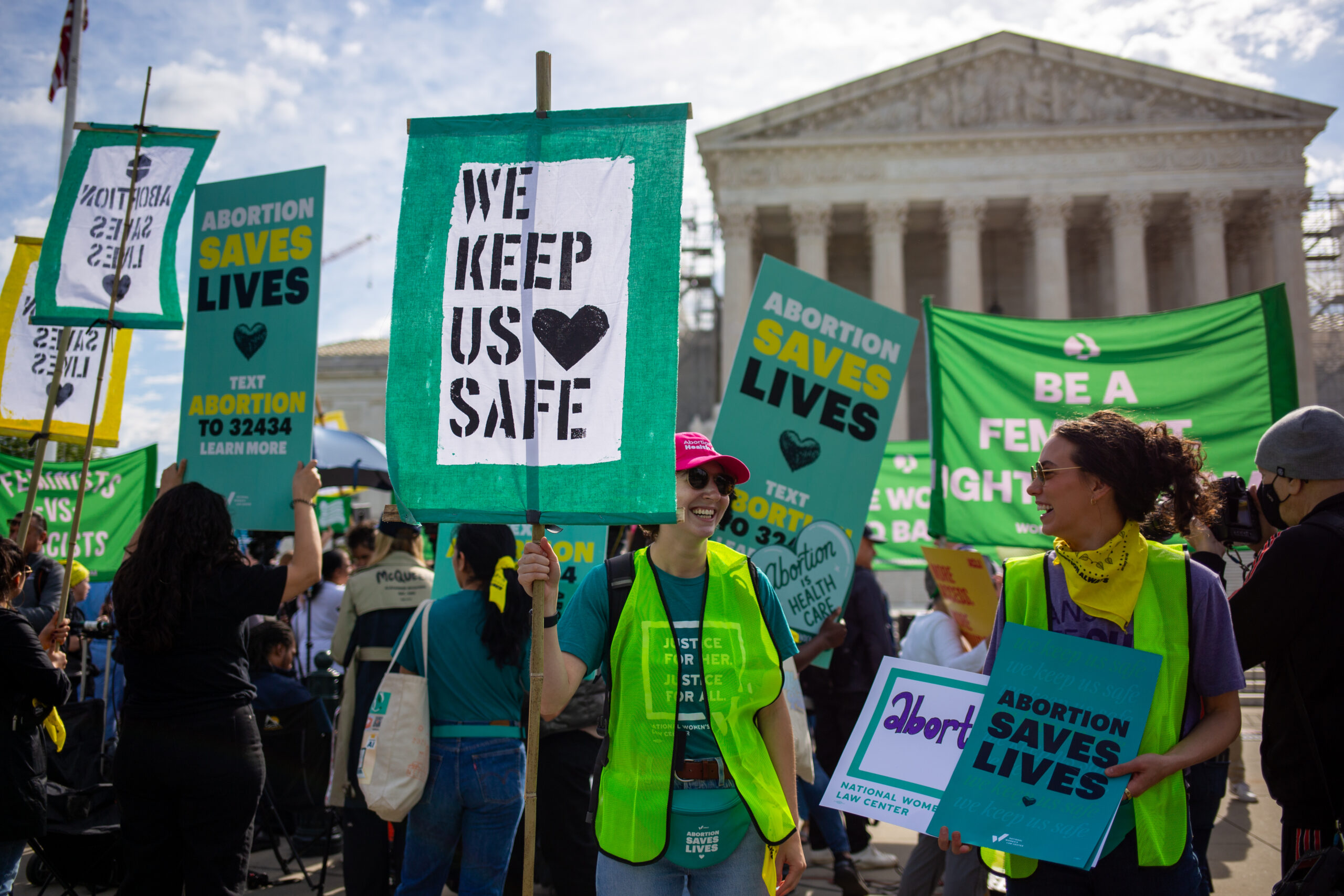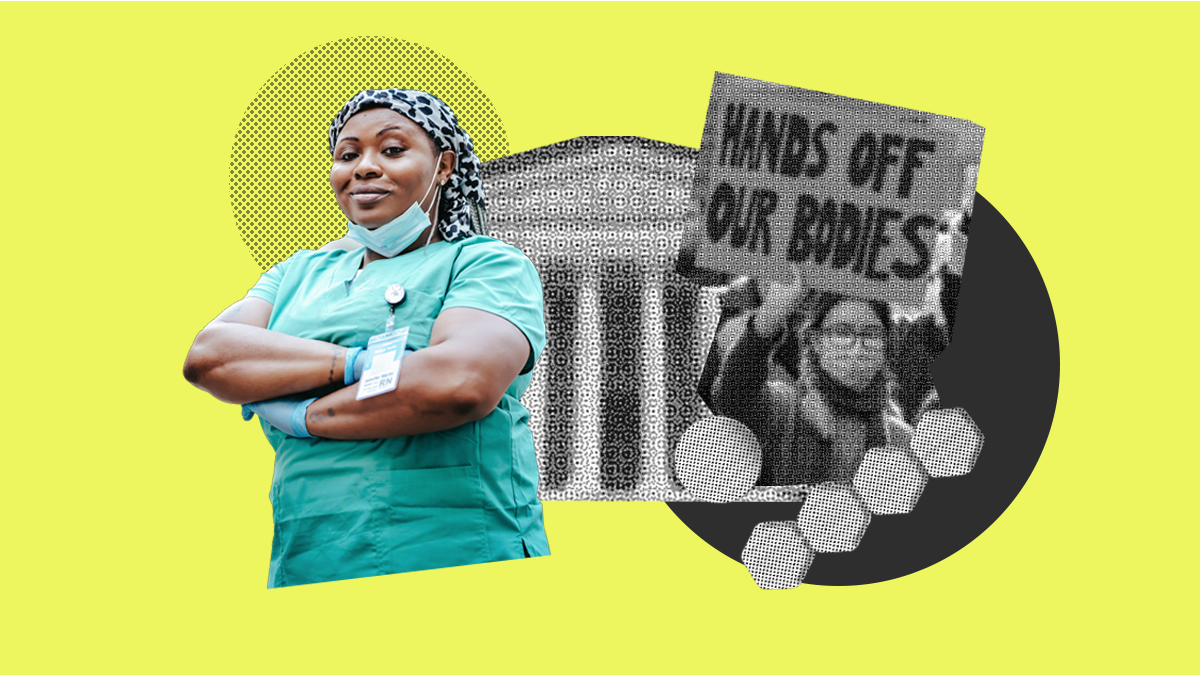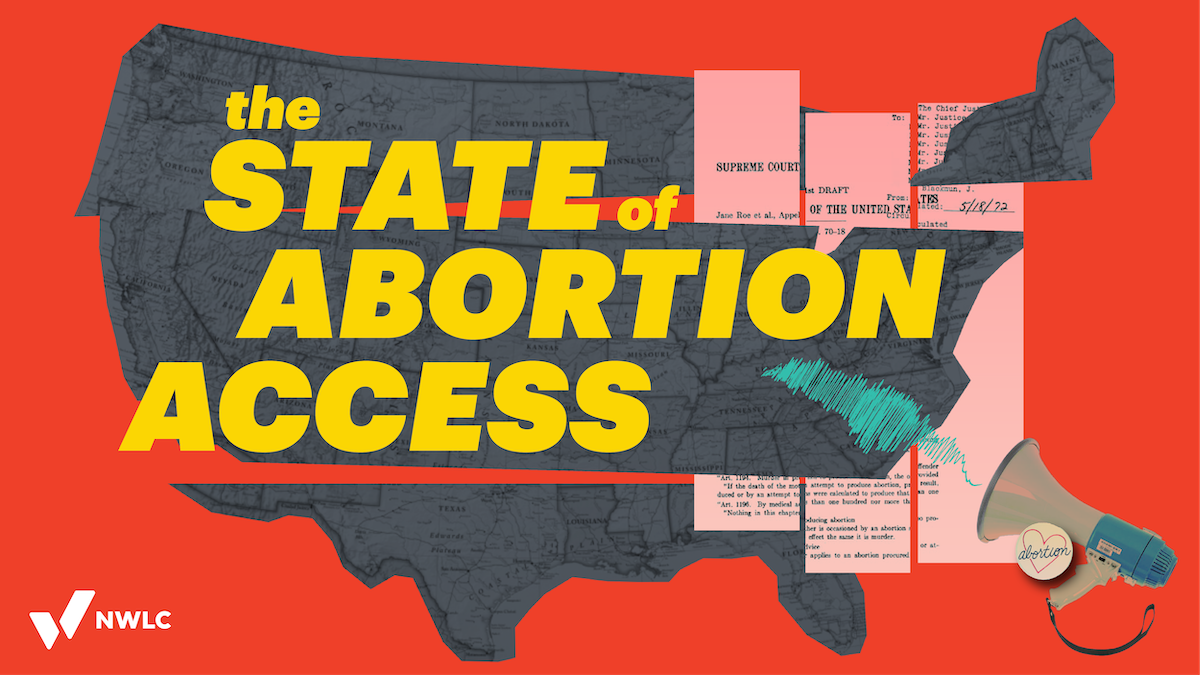Abortion rights, women of color, and LGBTQIA+ people are under attack. Pledge to join us in fighting for gender justice.
Reproductive Rights Advocates Unite in Washington, D.C. Rally to Defend Emergency Abortion Care

Washington, D.C. – Today, hundreds of reproductive rights, health, and justice advocates, legal experts, medical providers, and patients at an “Abortion is Healthcare” rally urged the Supreme Court to protect the right to emergency abortion care. This federally-protected right is at risk as the high court deliberates whether state abortion bans can override protections in the Emergency Medical Treatment and Labor Act (EMTALA).
“Everyone experiencing a health emergency should be able to get the care they need — including an abortion — without delay or political interference,” said Fatima Goss Graves, President and CEO of the National Women’s Law Center. “If the Supreme Court sides with extremists in this case, it will mean excluding pregnant people from the right to treatment for emergency medical conditions – a right that Congress guaranteed almost four decades ago and that has become a bedrock of patient rights in our country.”
Last month, 27 amicus briefs were filed with the Supreme Court in support of the federal right to emergency abortion care. They were signed by a broad coalition of major medical organizations, physicians, people who have been denied critical health- and life-saving emergency abortion care, former HHS officials, members of Congress, states, cities, counties, prosecutors, public health experts, legal scholars, businesses, advocates for disability rights and survivors of intimate partner violence, abortion funds, and over 100 gender justice, reproductive rights and justice, civil rights, and labor organizations.
During the court’s oral argument on the case, many rally speakers from different parts of the country — including Idaho, Florida, and Missouri and other states with restrictive abortion laws — shared their stories and the impacts of this effort by Idaho to ban emergency abortion care and other attacks on sexual and reproductive health care.
“When I was denied the life saving abortion care I needed, my pregnancy — once my source of hope and joy — began to feel like my death sentence. No one should have to go through that,” said Mylissa Farmer, who was denied life-saving abortion care by hospitals in Missouri and Kansas in 2022 after her water broke just short of 18 weeks.
Dr. Caitlin Gustafson, a family medicine obstetrician in rural Idaho, said pregnancy complications are, unfortunately, all too common.
“Before the ban on abortion care in Idaho, our patients could decide to receive the life-saving care they needed in time-sensitive emergencies, such as bleeding or infection or organ failure due to preeclampsia, with the providers they know and trust. But we have lost this crucial protection for pregnant people in Idaho. Emergency care for pregnancy complications has been denied, and a worsening maternal healthcare crisis has ensued,” she said.
“The longer pregnant Idahoans must travel out of state to get the life-saving treatment they need, there will be an increase in maternal health complications and maternal deaths. We will suffer, and people already are suffering, worsening physician shortages that affect all kinds of medical care.”
Following the arguments, legal experts weighed in what they heard in the courtroom.
“Several of the Justices laid bare the devastation occurring on the ground in Idaho and other states where pregnant people in crisis have been turned away from receiving the life- and health-saving care they need. These Justices recounted stories of pregnant people experiencing terrifying medical emergencies who were forced to suffer, showing in no uncertain terms what is at stake in this case: the lives and health of pregnant people,” said Michelle Banker, Director of Litigation for Reproductive Rights and Health at the National Women’s Law Center. “This should be an open and shut case – federal law is clear: all people who go to the emergency room must receive the care they need, including abortion care, regardless of state law.”
The case is expected to be decided by the Supreme Court in June 2024.
For photos of the rally, click here and here.
###



